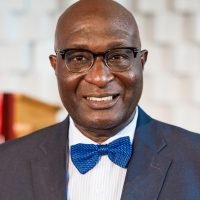SEPTEMBER 8, 2024
READ: Psalm 87
MEMORY VERSE
“All my fountains are in you.” Psalm 87:7
BACKGROUND
In 1960, Otto Preminger provoked controversy with his movie Exodus. Based on Leon Uris’ novel, it provides a fictional account of Jewish refugees emigrating to Palestine after World War II.
The film concludes with the bodies of a young European-Jewish girl and an Arab man, both murder victims, buried in the same grave in what would soon be the nation of Israel.
Preminger leaves the conclusion to us. Is this a metaphor for despair, a dream forever buried? Or is it a symbol of hope, as two peoples with a history of hatred and hostilities come together—in death and in life?
Perhaps the sons of Korah, credited with writing Psalm 87, would take the latter view of this scene. They anticipated a peace we still await. Of Jerusalem, they wrote, “Glorious things are said of you, city of God” (v. 3).
They sang of a day when nations—all with a history of warring against the Jewish people—will come together to acknowledge the one true God: Rahab (Egypt), Babylon, the Philistines, Tyre, Cush (v. 4). All will be drawn to Jerusalem, and to God.
The conclusion of the psalm is celebratory. People in Jerusalem will sing, “All my fountains [springs] are in you” (v. 7). Who are they singing of? The One who is the Living Water, the Source of all life (John 4:14). Jesus is the only one who can bring lasting peace and unity.
By: Tim Gustafson
INSIGHT
The word Zion is mentioned more than 150 times in the Bible. It’s used literally to refer to Jerusalem (city of David/city of God) and spiritually to refer to God’s heavenly kingdom (see Hebrews 12:22).
It occurs mostly in Old Testament prophetic literature (about fifty times in Isaiah) and the Psalms (about forty times). The first reference is, in a way, a blueprint for future usage: “David captured the fortress of Zion—which is the City of David” (2 Samuel 5:7).
The ancient fortress, previously held by Jebusites/Canaanites, was taken by David and his soldiers. Zion was a significant place occupied by a significant person (God’s anointed) who would rule over a significant people (God’s chosen people).
Psalm 132:13-14 beautifully captures the importance of Zion: “The Lord has chosen Zion, he has desired it for his dwelling, saying, ‘This is my resting place for ever and ever; here I will sit enthroned, for I have desired it.’ ”
By: Arthur Jackson
APPLICATION
What conflicts, both global and personal, cause you distress? How will you trust God to bring about His peace?
PR’s RE-EMPHASIS (From Post)
“Jesus is the only one who can bring lasting peace and unity.”
PR’s (PASTOR RICHARD) TAKE
“For Christ Himself has brought peace to us. He united Jews and Gentiles into one people when, in his own body on the cross, he broke down the wall of hostility that separated us. He did this by ending the system of law with its commandments and regulations.
He made peace between Jews and Gentiles by creating in himself one new people from the two groups. Together as one body, Christ reconciled both groups to God by means of his death on the cross, and our hostility toward each other was put to death.” Ephesians 2:14-16 (nlt)
PRAYER
I pray, Father, for the peace and unity of all people as they’re drawn to Your Son.
TODAY’S HYMN/WORSHIP/PRAISE/GOSPEL SONG
“IN CHRIST THERE IS NO EAST OR WEST”
In Christ there is no east or west,
In him no south or north,
But one great fellowship of love
Throughout the whole wide earth.
In Christ shall true hearts ev’rywhere
Their high communion find.
His service is the golden cord
Close binding humankind.
Join hands, then, people of the faith,
Whate’er your race may be.
All children of the living God
Are surely kin to me.
In Christ now meet both east and west,
In him meet south and north.
All Christly souls are joined as one
throughout the whole wide earth.
READING THROUGH THE BIBLE THIS YEAR (DAILY)
ACTS 19







